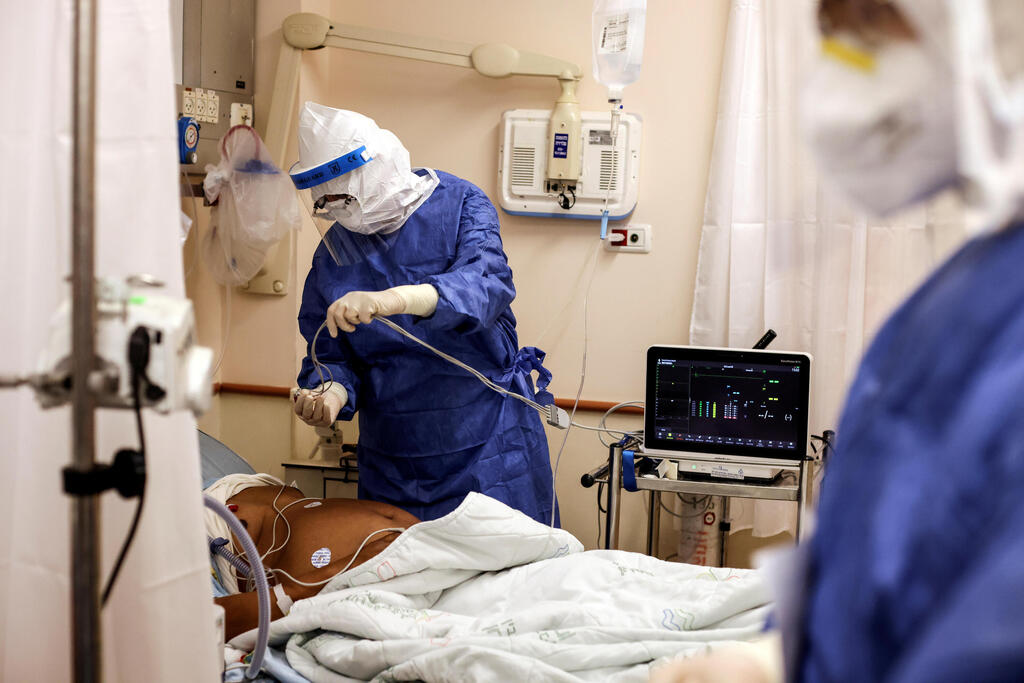Getting your Trinity Audio player ready...
Israel has seen a decline in severe COVID-19 cases Thursday, perhaps heralding the first signs of a possible respite since the onset of the country's fourth wave of infections.
Israeli hospitals were treating 680 COVID-19 patients in serious condition — 19 fewer than the previous day — 135 of whom were connected to ventilators.
Of the severely ill, 349 patients were not vaccinated, 314 others were fully vaccinated while another 15 were only partially inoculated.
Among serious patients aged 60 and over, 259 were vaccinated while 206 were unvaccinated, however, this age group has seen a decline in serious cases among the vaccinated in recent days as the country began offering its senior citizens a supplementary vaccine dose compared to an uptick in severe cases among those who haven't received the shot.
Considering that 92% of this age group has been vaccinated with at least two doses, unvaccinated people over 60 are almost 13 times more likely to end up developing severe illness than their vaccinated counterparts.
Meanwhile, the Health Ministry reported that 8,800 Israelis have tested positive for coronavirus out of 139,018 tests carried out Wednesday, putting Israel's contagion rate at 6.57%.
3 View gallery


Health worker tests child for COVID-19 at Jerusalem's Biblical Zoo
(Photo: Moshe Mizrahi)
The national coronavirus death toll since the start of the pandemic rose by 13 on Thursday to 6,909 fatalities, with 431 Israelis succumbing to the pathogen in August alone.
Some 1,772,367 Israelis had received the third dose of the coronavirus vaccine as of Thursday morning.
An Israeli study published on Wednesday in the New England Journal of Medicine showed that the use of Pfizer Inc and German partner BioNTech SE's widely used COVID-19 vaccine marginally increases the risk of heart inflammation, but the risk is higher among those infected with coronavirus.
Among every 100,000 patients who get the vaccine, 1 to 5 will likely develop myocarditis who would not otherwise have developed it, researchers reported based on data from Clalit Health Services, Israel's largest health maintenance organization (HMO).
3 View gallery


Magen David Adom medic holds vial of COVID-19 vaccine and syringe at vaccination hub in Holon
(Photo: AFP)
Among people infected with coronavirus, that rate is much higher and stands at 11 per 100,000.
The data comes days after Pfizer/BioNTech's COVID-19 vaccine became the first fully approved vaccine in the United States for people aged 16 and older, a move that could potentially persuade vaccine skeptics to get the shot.
The researchers compared adverse event rates in 884,828 vaccinated individuals and an equal number of unvaccinated people. Overall, 21 persons reported myocarditis in the vaccinated group — mostly young men — compared with 6 people among the unvaccinated.


